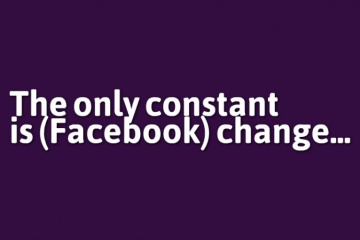Three (real) reasons why Facebook has changed the promotion and competition rules

This week’s announcement from Facebook about changes made to promotion and competition rules has sent social and digital media agencies into a spin.
If you missed the news, Facebook has removed the requirement that promotions can only be administered through apps and can now be featured within the news feed using simple like and comment mechanics.
The announcement has been analysed from a bunch of different perspectives, especially what it means to businesses, large and small.
Instead of adding to that commentary, I wanted to look at the reasons why Facebook has instituted this change.
Officially, Facebook said the changes were made to make it easier for businesses of all sizes to administer promotions on pages.
But, there are other reasons too.
1. Facebook wants businesses to spend money on ads, not apps developed by 3rd parties
The old rules required brands to engage 3rd parties to develop applications to run and fulfill competitions which were often very costly.
In fact, many social and digital media agencies have built their businesses on this requirement.
But Facebook wants business to spend their marketing money on making their content and promotions more visible through Facebook ads, not on 3rd parties where they don’t see any revenue.
2. Facebook is now a mobile-first platform
One of the biggest problems with Facebook applications is that that many didn’t work on mobile devices.
To get around this, mobile versions were hosted outside of Facebook, taking users away from the platform.
By moving more competitions to the main news feed, more time will be spent within Facebook which increases its value to advertisers.
3. Facebook wants brands and businesses to develop more content that works within the news feed
One of the biggest reactions from industry commentators and agency land to the rule change news was a fear that news feeds would be clogged up with competitions.
While we might see a bit of this initially, it will calm down as promotions tend to attract a certain type of fan and may potentially water down the quality of communities.
Facebook, like Google, has recognised that the consistent flow of content is what makes the platform relevant and the removal of the promotion rules barrier increases the volume of news feed content.
The big lesson for businesses and brands
This change from Facebook is just another example of the blessing and the curse that is Facebook.
Brands and business do not own their Facebook presence, they are paying rent.
When you pay rent, your landlord can make changes that you may be forced to live with.
The focus must shift from creating content for Facebook, to creating content that adds value no matter where it is published.
About Kamber
Kamber is a specialist content marketing and social media agency based in Australia.
We help clients behave in ways that make them valued online participants which is the best way to tie content marketing and social media into your operational and commercial objectives.
You can follow Kamber on Twitter via @KamberCo or join our Facebook community to access more analysis and insights from our team.